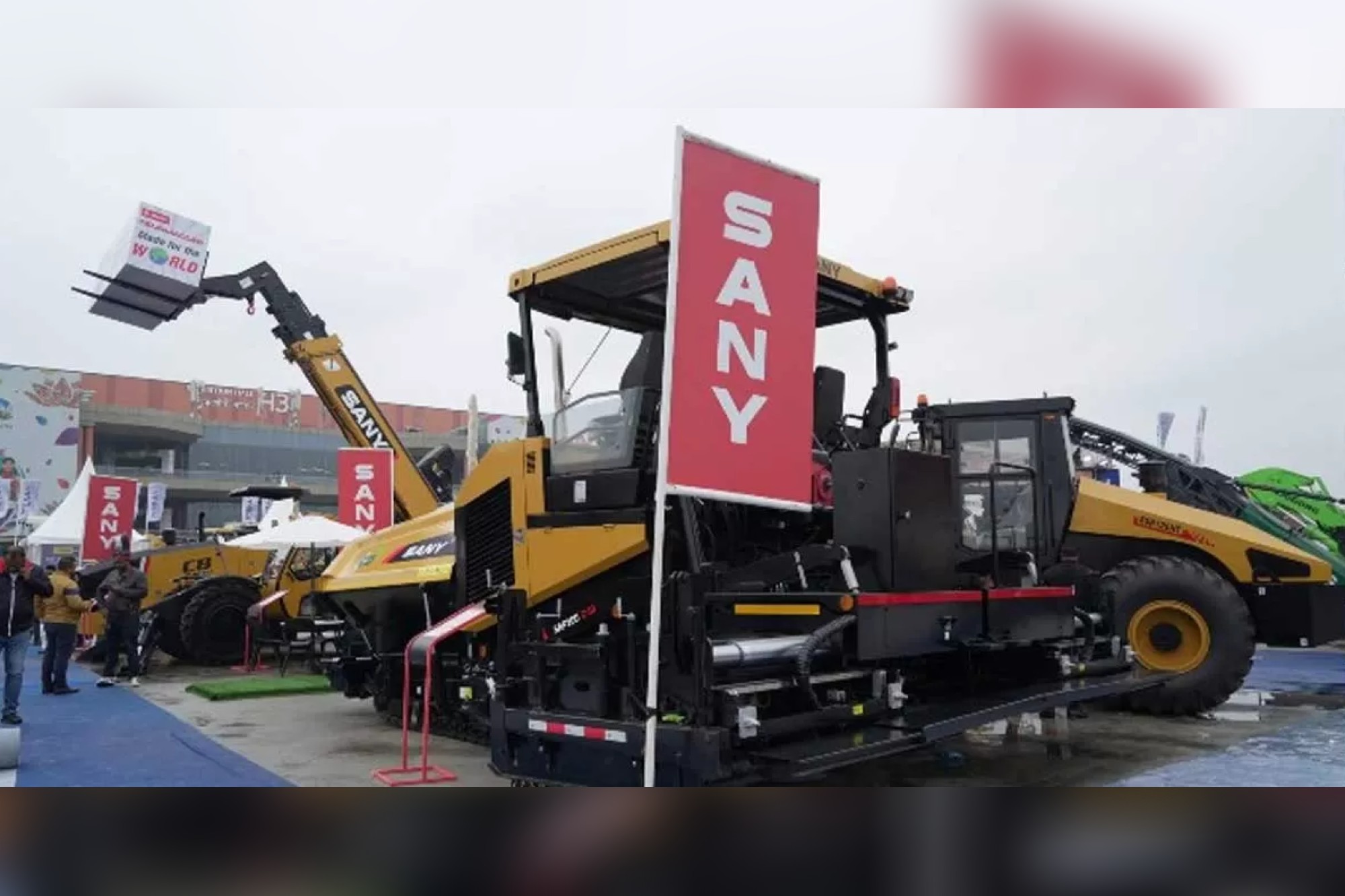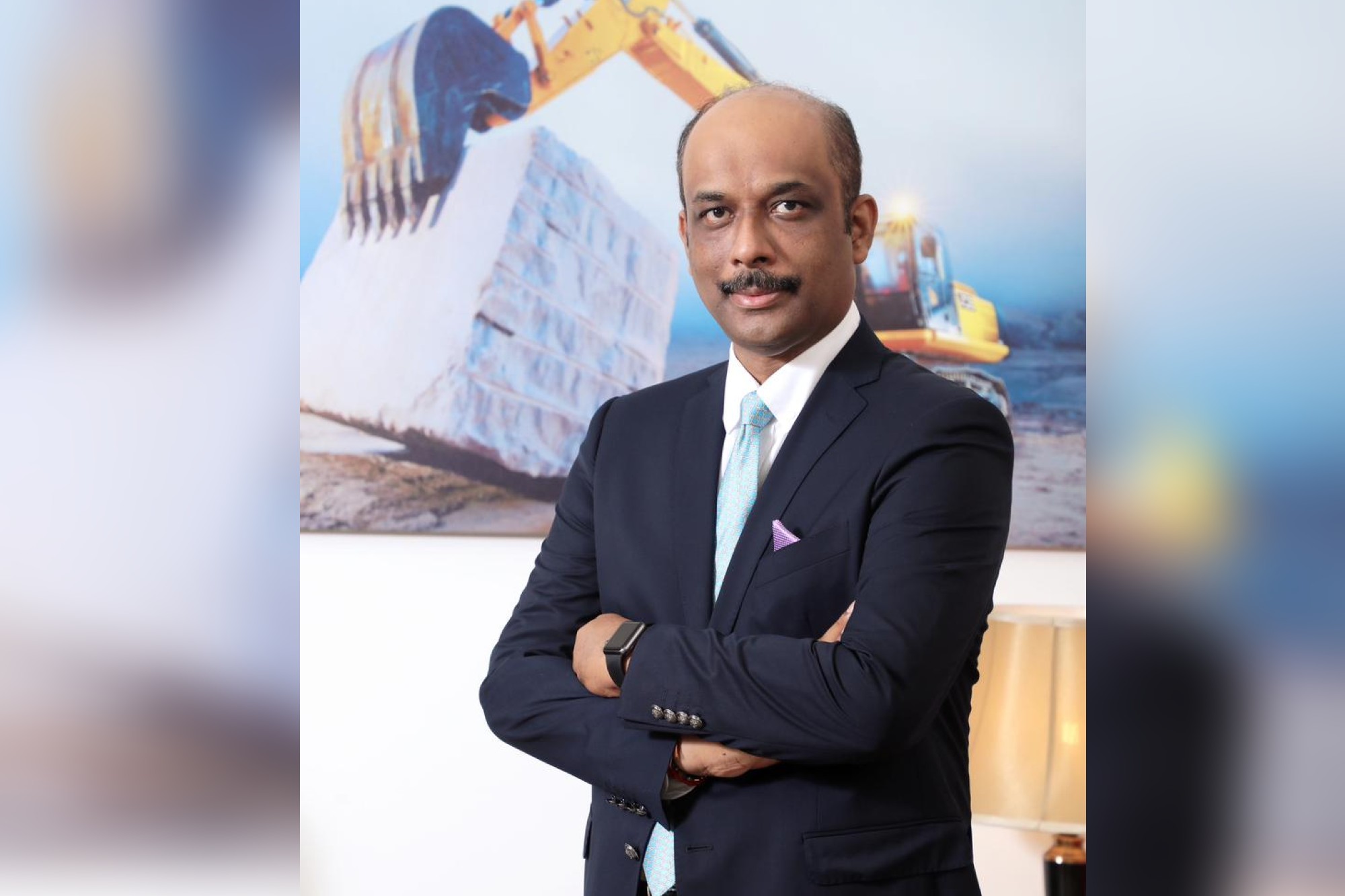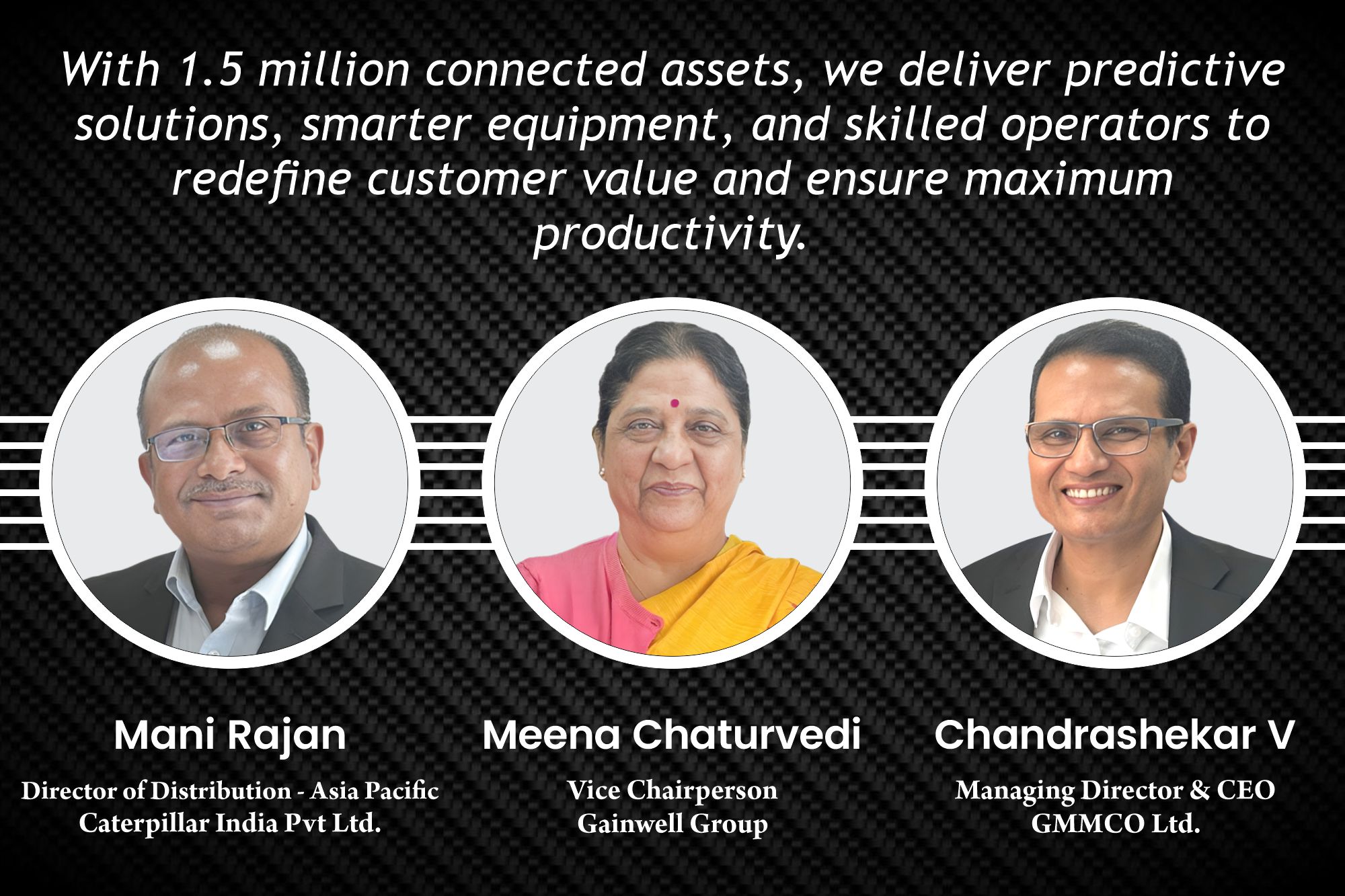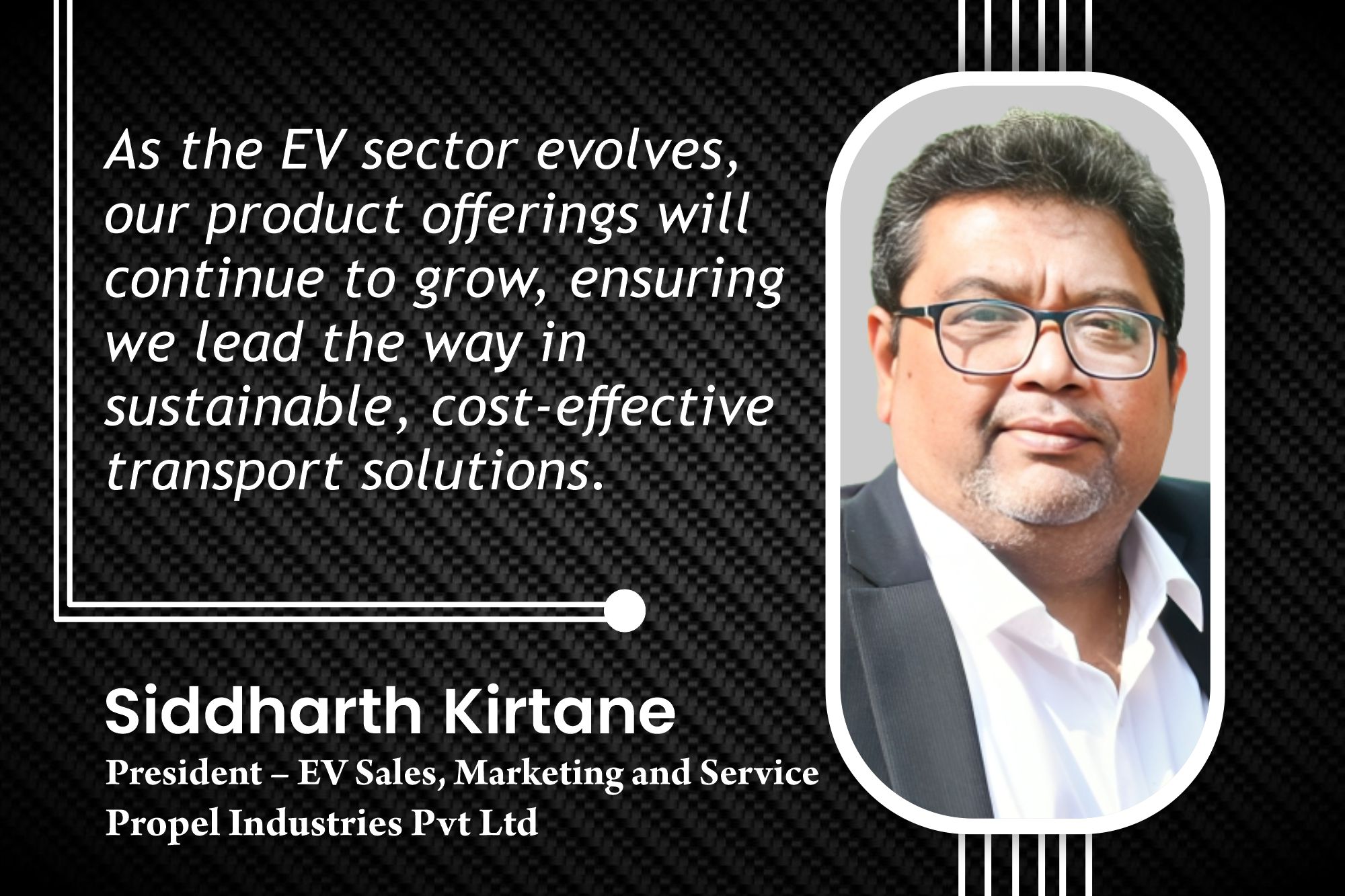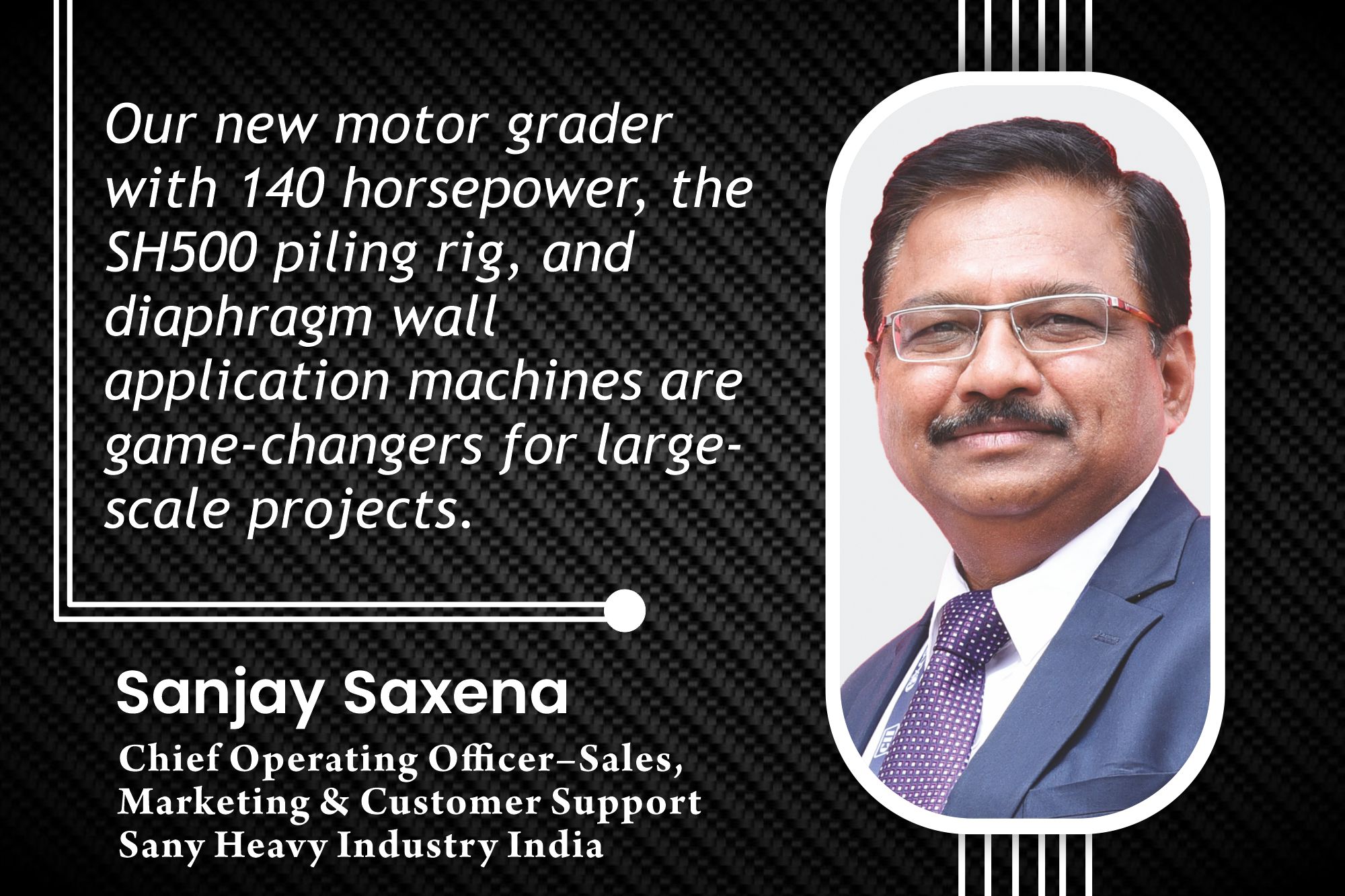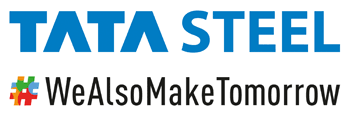A rosy road ahead to sustainable infrastructure
By Staff Report | October 21, 2024 4:23 pm SHARE
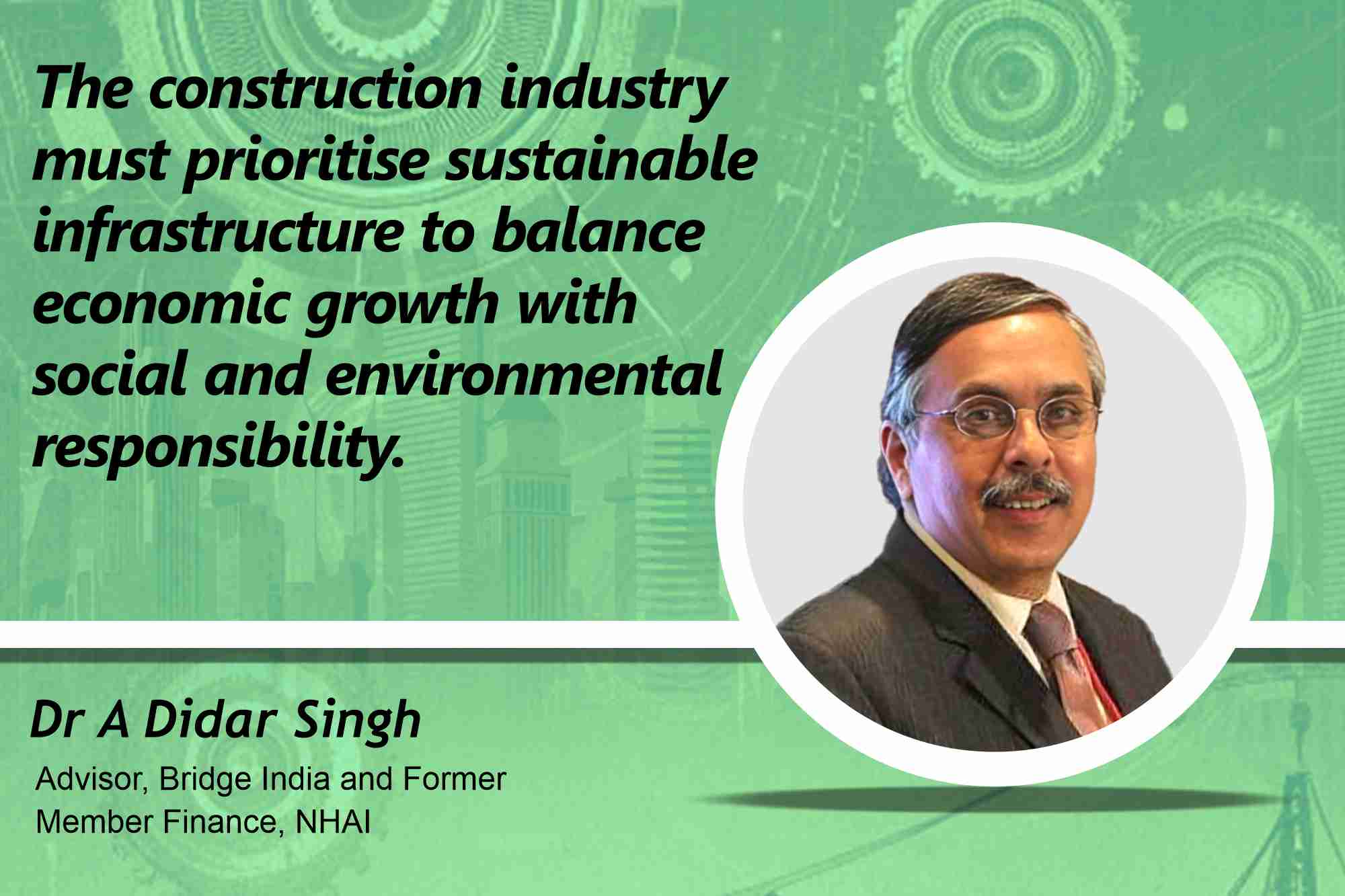
This interview explores the dynamic interplay between government policy and industry innovation, highlighting how effective collaboration can overcome challenges and unlock resources for large-scale projects. By focusing on key areas such as regulatory efficiency, land availability, and consumer protection, we can create an environment where sustainable practices flourish.
As a former Secretary General of FICCI and an experienced civil servant, how do you see the intersection of government policy and industry growth in sectors like infrastructure and construction? How can public-private partnerships further accelerate this growth?
India stands at the forefront of public-private partnership (PPP) initiatives, leading the world with the highest number of PPP projects. Both the government and the private sector need to collaborate effectively to foster growth, particularly in the infrastructure and construction industries. This collaboration can unlock significant resources and expertise, enabling large-scale projects to be executed efficiently. Government policy can facilitate this by creating a regulatory environment that encourages investment, mitigates risks, and ensures transparency. Furthermore, public-private partnerships can expedite project timelines and enhance the quality of services delivered to the public. By leveraging the strengths of both sectors, we can not only accelerate growth but also ensure that infrastructure development meets the needs of a rapidly evolving economy.
With your expertise in public policy and government administration, what do you believe are the key policy areas that the construction industry in India needs to address for sustained growth and innovation?
Key policy areas that demand attention for the sustained growth and innovation of the construction industry include land availability, regulatory frameworks, and consumer protection. Access to land at reasonable costs is fundamental; without this, projects can stall or become prohibitively expensive. Additionally, there should be a focus on enhancing the efficiency of regulatory approvals and simplifying compliance processes. Protecting consumer interests is vital to maintaining confidence in the industry, ensuring that projects deliver value while adhering to safety and quality standards. A forward-looking policy approach that prioritises these areas will create a conducive environment for innovation and sustained growth in the sector.
With your association with think tanks like Bridge India and CUTS International, how do you see the role of such institutions in shaping policy frameworks that impact infrastructure development in India?
Institutions like Bridge India and CUTS International play a pivotal role in shaping policy frameworks that influence infrastructure development. Their research initiatives provide valuable insights into the challenges and opportunities within various sectors, particularly in infrastructure and construction. By conducting thorough analyses and engaging in stakeholder dialogues, these think tanks can produce evidence-based recommendations that inform government policy. This research is crucial for crafting responsive policies that address the real needs of the industry and the public, fostering an environment where infrastructure development can thrive.
You’ve highlighted that the ‘India Story’ is often told through a narrow lens. How do you believe the construction industry can contribute to broadening this narrative, emphasising not just economic growth but also social progress, innovation, and sustainability?
To broaden the ‘India Story’, the construction industry must adopt a dual perspective: thinking globally while acting locally. Integrating global best practices into every project is essential for ensuring that India meets international standards. The construction sector should not only focus on economic outcomes but also emphasise social progress, innovation, and sustainability. By delivering projects that are environmentally friendly, socially responsible, and economically viable, the industry can contribute significantly to a more holistic narrative. It is crucial to achieve this at reasonable costs, ensuring that quality and sustainability go hand in hand. Only then can we genuinely claim to be leaders on the global stage, showcasing an India that excels in construction while uplifting its communities.
Cookie Consent
We use cookies to personalize your experience. By continuing to visit this website you agree to our Terms & Conditions, Privacy Policy and Cookie Policy.



